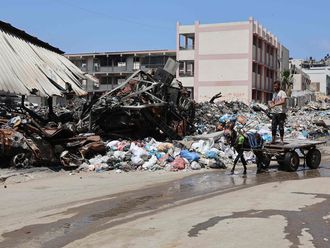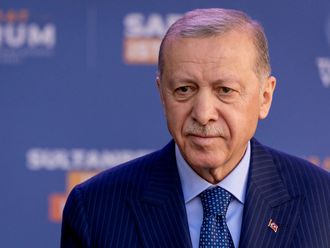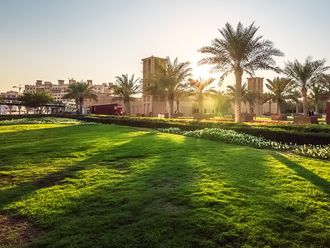Tehran: Iran on Tuesday warned Saudi Arabia to reconsider its vow to make up for any shortfall in Iranian oil exports under new sanctions, saying Riyadh's pledge to step into the market was unfriendly.
Foreign Minister Ali Akbar Salehi issued the warning in remarks carried by state media.
"We invite Saudi officials to further reflect and consider" their offer to compensate for curbed Iranian oil exports, Salehi said.
He attacked comments by Saudi Oil Minister Ali Al Naimi that Saudi oil output could be boosted by around 2.6 million barrels per day — the same amount that Iran exports — and that the world will not permit Iran to close the strategic Strait of Hormuz.
"These signals are not friendly signals," Salehi said. "Iran expects all Gulf countries, in particular Saudi Arabia ... to avoid making rash remarks."
He also said that "the security of the Gulf is a collective security and Iran is a major player in this regard".
Iran has already told Saudi Arabia and other oil-producing Arab neighbours that if they step in to compensate for Iranian oil exports cut under looming EU and US sanctions, it "would not consider these actions to be friendly".
Chokepoint
Tehran's representative to Opec, Mohammad Ali Khatibi, was quoted as saying on Sunday that those countries "will be held responsible for what happens" if they did so, adding ominously: "One cannot predict the consequences."
Iran's political and military leaders have repeatedly said that if their country is unable to export its oil, they will stop other producers in the Middle East from sending their oil through the Strait of Hormuz at the mouth of the Gulf. The narrow channel is a chokepoint for more than a third of the world's tanker-borne oil, or 20 per cent of the world's total traded oil, according to the US Energy Department.
Meddling in affairs
Saudi Arabia is by far the biggest exporter in Opec, followed by Iran.
Relations between the two countries have long been poor, and have become worse in recent months following US allegations that a thwarted plot to assassinate the Saudi ambassador in Washington was hatched in Tehran.
The Gulf Cooperation Council, which comprises oil-producers Saudi Arabia, Bahrain, the United Arab Emirates, Oman, Kuwait and Qatar, has accused Iran of interfering in its members' internal affairs.
Naimi's interview with CNN was recorded on the weekend, before Khatibi made his warning to Iran's neighbours, but after Iran's threats to close the Strait of Hormuz. He said Saudi Arabia was currently producing up to 9.8 million barrels per day, but had "substantial spare capacity" to produce 12.5 million bpd.
"I believe we can easily get up to 11.4, 11.8 [million bpd] almost immediately, in a few days. Because all we need is to turn valves. Now to get [the rest] we probably need about 90 days," he said.
On the threats over the Strait of Hormuz, Naimi said: "The world cannot stand for that."
Allegation
The United States and the European Union are ramping up sanctions on Iran in an effort to get it to halt its nuclear activities, which they fear include research on developing atomic weapons.
Tehran denies that allegation. It has dismissed an International Atomic Energy Agency report from November that hinted at evidence supporting the Western accusation as "baseless".
The Western sanctions aim to sharply reduce Iran's oil exports and income.
The United States has already introduced a law barring any foreign companies doing business with Iran — and especially its central bank — from dealing with the huge US financial system. The European Union has agreed in principle to impose a ban on Iranian oil imports. It is expected to announce details of its measures at an EU foreign ministers' meeting next week.












